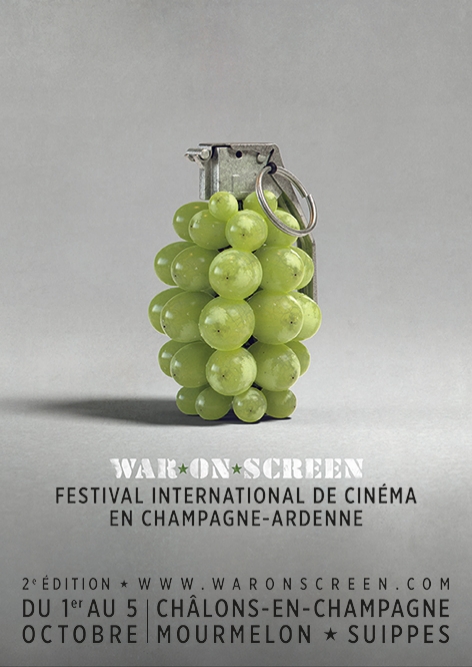
WAR ON SCREEN 2014
FOCUS ON SARAJEVO : FROM ONE WAR TO ANOTHER
When we look specifically at those conflicts that started and ended during the 20th century, no city more aptly embodies our journey through this centenary. The First World War set Europe ablaze, the Bosnian capital its flashpoint. The siege on Sarajevo between 1992 and 1996 remains the symbol of the last major conflict on European soil. These two landmark events, so different yet bringing us full circle, have inspired a number of filmmakers. This spotlight presents some of the films, from a number of countries that have traced this journey, and specifically that of Bosnia during the years of the siege. A land of conflict, Sarajevo is also a country of filmmakers, the cradle of ubiquitous artists such as Danis Tanovic, and the largest film festival in Eastern Europe, set up in 1995 during the siege on the city. This was followed more recently by the creation in June 2014 of an all-new festival, backed by the WARM Foundation, probing the subject of wars.
Now, almost 20 years on, filmmaking has gained the upper hand over war, as though its apparent victory.
THE FILMS
CASQUE BLEU (1995), by Chris Marker – France
CIRKUS COLUMBIA (1997), by Danis Tanovic – Bosnia/France/UK/Germany/Slovenia/Belgium/Serbia
MAYERLING TO SARAJEVO (1940), by Max Ophüls – France
JE VOUS SALUE, SARAJEVO (1993), by Jean-Luc Godard – France
NO MAN’S LAND (2001), by Danis Tanovic – Bosnia/France/Slovenia/UK/Italy/Belgium
THE TROUBLES WE’VE SEEN (1994), by Marcel Ophuls – France/Germany/UK
WELCOME TO SARAJEVO (1997), by Michael Winterbottom – USA/UK
MISS SARAJEVO (1995), by Bill Carter – USA
TESTIMONY AND DISCUSSION WITH REMY OURDAN
From 1992 to 1996, Rémy Ourdan, war correspondent and deputy editor of Le Monde, lived in Sarajevo during the whole siege. Amidst combats, restrictions and daily dramas, he met and accompanied young filmmakers and creators. He sis a privileged witness of this period. 20 years later, in the Bosnian capital, he created Warm, a foundation dedicated to the comprehension on contemporary conflicts.
WAR ON SCREEN 2014
FOCUS SARAJEVO : D’UNE GUERRE À L’AUTRE
Si l’on s’en tient aux conflits qui, en Europe, débutent et achèvent le XXème siècle, aucune ville n’incarne mieux la traversée de ce centenaire. La première guerre mondiale embrasa l’Europe à partir de la capitale Bosniaque. Le siège de Sarajevo, entre 1992 et 1996, demeure le symbole du dernier conflit majeur sur le sol européen. Ces deux faits saillants, si différents et pourtant ramenant à la même ville, ont inspiré de nombreux cinéastes. Le présent focus montre quelques uns des films, issus de nombreux pays, qui ont accompagné ce parcours et plus particulièrement la Bosnie des années de siège. Terre de conflit, Sarajevo est aussi une terre de cinéma, berceau de créateurs incontournables à l’instar de Danis Tanovic, et du plus grand festival de films d’Europe de l’Est : le festival de Sarajevo, créé en 1995, durant le siège de la ville. Il est suivi par la création, en juin 2014, d’un tout nouveau festival, porté par la fondation Warm, interrogeant les guerres.
Aujourd’hui, presque 20 ans après, le cinéma a pris le pas sur la guerre, comme s’il semblait l’avoir vaincu.
LES FILMS
CASQUE BLEU (1995), de Chris Marker – France
CIRKUS COLUMBIA (1997), de Danis Tanovic – Bosnie/France/GB/Allemagne/Slovenie/Belgique/Serbie
DE MAYERLING À SARAJEVO (1940), de Max Ophüls – France
JE VOUS SALUE, SARAJEVO (1993), de Jean-Luc Godard – France
NO MAN’S LAND (2001), de Danis Tanovic – Bosnie/France/Slovenie/Italie/GB/Belgique
VEILLÉES D’ARMES (1994), de Marcel Ophuls – France/Allemagne/Royaume Uni
WELCOME TO SARAJEVO (1997), de Michael Winterbottom – Royaume Uni/États-Unis
MISS SARAJEVO (1995), de Bill Carter – États-Unis
TEMOIGNAGE ET ECHANGE AVEC REMY OURDAN
De 1992 à 1996, Rémy Ourdan, aujourd’hui directeur adjoint de la rédaction du Monde, a vécu dans Sarajevo assiégée. Au milieu des combats, des restrictions et des drames du quotidien, il a vu naître et grandir un groupe de jeunes cinéastes et créateurs. Il est le témoin privilégié de cette période. 20 ans après, dans la capitale bosniaque, il crée Warm, une fondation dédiée à la compréhension des conflits contemporains.